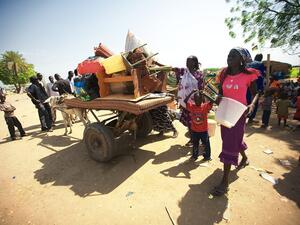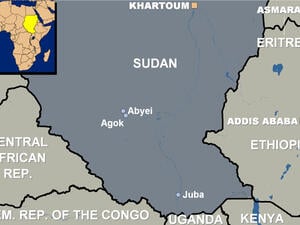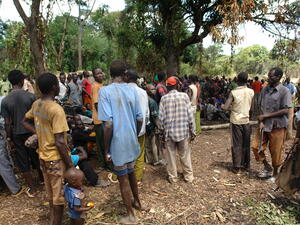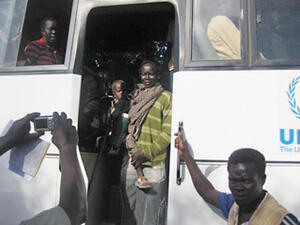Uganda: Arrivals from southern Sudan on the increase
Uganda: Arrivals from southern Sudan on the increase
There has been a marked increase in the number of refugees crossing from southern Sudan into Uganda in recent weeks. In the past month, some 3,200 Sudanese have crossed into the northern Ugandan districts of Muyo, Adjumani, Yumbe and Arua. Another 1,000 had previously registered in September.
Refugees cite a growing number of raids by the Ugandan rebel group, the Lord's Resistance Army (LRA) from its bases in south Sudan as the main reason for taking flight. Fighting along the border has intensified in recent months, as a result of a push from both Ugandan troops and the Sudan People's Liberation Army (SPLA) to rout the rebel group from south Sudan. A severe shortage of food due to crop failure in the area also appears to be a contributing factor.
Our office in Kampala is concerned that this continuing influx is stretching Uganda's resources to their limits. Even before these recent arrivals, Uganda was home to more than 220,000 refugees, 187,000 of whom are Sudanese, the largest concentration of refugees from south Sudan in Africa.
Two decades of bitter fighting between governmental troops and the SPLA brought devastation to south Sudan and caused more than half a million people to flee to other countries, while three million others have been internally displaced.
Fighting slowly came to a halt over the past two years, and only this morning the two warring sides signed a pledge of peace at a special meeting of the UN Security Council in Nairobi, paving the way for a comprehensive peace agreement to be reached soon. UNHCR plans to start a voluntary repatriation programme to south Sudan shortly after the signing of this agreement, provided conditions at that time are conducive to safe and dignified return.
In the meantime, the refugee agency has launched a series of initiatives in the areas of water, health and sanitation, as well as education, to assist the hundreds of thousands of people who have already returned to south Sudan. These activities will also help to strengthen the region's capacity to receive returning refugees in the future. This operation, crucial to the rebuilding of south Sudan, is currently severely under-funded.







